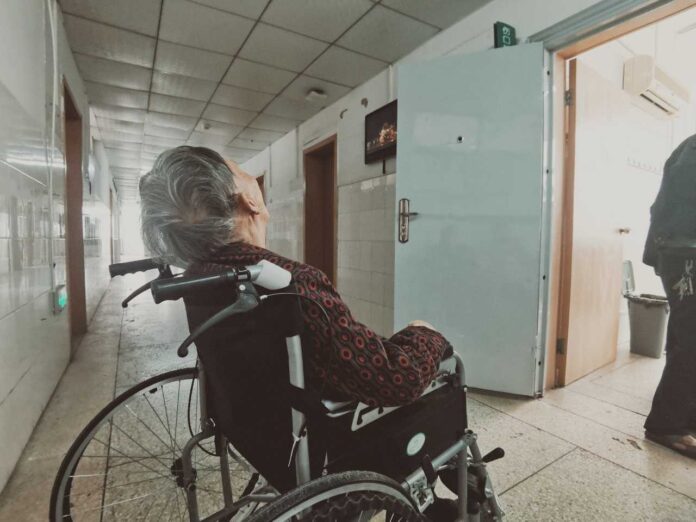Massive spike in dangerous Victorian disease in the UK
In recent months, the United Kingdom has experienced a concerning surge in the cases of measles, mumps, and rubella. Despite the widespread availability of vaccines, these highly infectious diseases have seen alarming increases, with rates rising as much as fivefold in the first quarter of this year compared to the same period in the previous year.
This resurgence of Victorian diseases poses a significant threat to public health, particularly in densely populated areas such as London.
The UK Health Security Agency’s data reveals a sharp increase in the number of cases of measles, mumps, and rubella in the first few months of this year. From January to March, there have been a suspected 454 cases of measles, over 1,600 possible cases of mumps, and 66 cases of rubella. These numbers are especially concerning considering the availability of vaccines and the potential consequences of these diseases. Notably, the majority of these cases are concentrated in London, a city known for its high influx of international travellers and dense population.
The COVID-19 pandemic has played a significant role in the resurgence of measles, mumps, and rubella. Lockdown measures and restricted movement during the pandemic led to a decline in the transmission of these diseases. However, as the world gradually recovers from the effects of the pandemic, cases of these Victorian diseases have started to rise again. Moreover, the pandemic has had an indirect impact on vaccination rates, contributing to the increased susceptibility of the population to these diseases.
Measles, one of the most contagious diseases known to humanity, has seen a concerning increase in confirmed cases. In the first quarter of this year alone, there have already been 31 confirmed cases, compared to just 7 during the same period last year. The symptoms of measles include a high temperature, runny or blocked nose, sneezing, coughing, red and sore eyes, spots in the mouth, and a distinctive rash.
Mumps, characterized by swelling of the glands at the top of the neck, has also experienced a significant surge in cases. By the end of March this year, confirmed cases of mumps have increased fivefold compared to the previous summer. The symptoms of mumps include headache, joint pain, feeling sick, and a dry mouth.
Rubella, also known as German measles, is another disease that has seen a resurgence in the UK. The distinctive rash is one of the key symptoms of rubella, along with aching fingers, wrists, or knees, high temperature, coughs, sneezing, and a runny nose.
The rising cases of measles are not limited to the UK alone. Southeast Asia and many parts of Africa have also reported increased activity of the virus. Furthermore, a significant portion of the UK’s cases are imported from abroad, highlighting the global nature of the problem. The World Health Organization Europe has issued a warning about the imminent threat of a measles resurgence, attributing it in part to the decline in vaccine rates during the pandemic.
The surge in measles, mumps, and rubella cases has revealed a concerning trend among those affected. The majority of individuals suffering from these diseases did not receive the appropriate vaccinations. This is particularly evident among young children whose parents may have chosen to forgo vaccinations due to concerns related to the pandemic. Vaccination plays a crucial role in preventing the spread of these diseases and protecting individuals from their potentially severe complications.
To curb the rising threat of measles, mumps, and rubella, it is essential to prioritize vaccination efforts. Public health authorities, healthcare providers, and community organizations must work together to ensure access to vaccines and educate the public about their importance. Additionally, maintaining high vaccination rates and addressing vaccine hesitancy are critical in preventing further outbreaks and protecting vulnerable people.
The resurgence of measles, mumps, and rubella in the UK is a grave concern for public health. The alarming rise in cases, particularly in densely populated areas like London, calls for immediate action. Vaccination remains the most effective way to prevent the spread of these diseases and protect individuals from their potentially severe consequences. By prioritizing vaccination efforts and addressing vaccine hesitancy, we can work towards a future where these Victorian diseases become a thing of the past.
Measles symptoms:
- High temperature
- Runny or blocked nose
- Sneezing
- Coughing
- Red, sore or watery eyes
- Spots in the mouth
- Distinctive rash
Mumps symptoms:
- Swelling of the glands at the top of your neck, either side
- Headache
- Joint pain
- Feeling sick
- Dry mouth
Rubella symptoms
- Distinctive rash
- Aching fingers, wrists or knees
- High temperature
- Coughs
- Sneezing
- Runny nose
